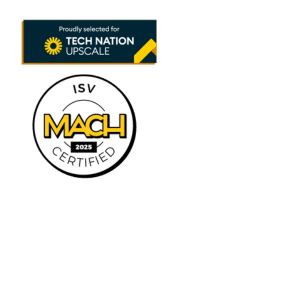What is iPaaS (Integration Platform as a Service?)
iPaaS is a cloud-based platform that enables organizations to connect different applications, data sources, and systems across their IT infrastructure. It provides tools and services for integrating various software applications, both within an organization and between the organization and external partners, without requiring complex coding or extensive technical expertise.
In-Depth Explanation of iPaaS
iPaaS is a cloud-based platform that enables organizations to connect various applications, data sources, and systems across different environments. It provides tools and services for developing, executing, and managing integration flows between disparate software applications, whether they are on-premises or in the cloud.
Why It Matters
In the rapidly evolving eCommerce landscape, businesses need to integrate multiple systems and applications to streamline operations and enhance customer experiences. iPaaS simplifies this process by providing a centralized platform for connecting various software solutions, eliminating data silos, and enabling seamless information flow across the organization. This integration capability is crucial for eCommerce businesses to stay competitive and responsive to market demands.
How It Works
iPaaS platforms typically offer a user-friendly interface with pre-built connectors, APIs, and templates for popular applications and services. Users can create integration workflows by dragging and dropping components, mapping data fields, and configuring business rules. The platform then handles the execution of these integration processes, managing data transformations, error handling, and monitoring in real-time.
Key Benefits
iPaaS offers several advantages for eCommerce businesses. It reduces the need for custom coding and complex integration projects, saving time and resources. The cloud-based nature of iPaaS ensures scalability and flexibility, allowing businesses to adapt quickly to changing needs. It also improves data consistency and accuracy across systems, leading to better decision-making and customer service.
Relevant Stats and Facts
A survey by Deloitte found that 93% of organizations using cloud technology are employing a multi-cloud strategy. Additionally, businesses using iPaaS report an average reduction of 30% in integration development time and costs.
Importance of iPaaS
Integration Platform as a Service (iPaaS) has become a crucial tool for businesses in the modern digital landscape. As companies increasingly rely on multiple software applications and systems to manage their operations, the need for seamless integration between these various platforms has become paramount. iPaaS provides a solution to this challenge by offering a cloud-based platform that allows businesses to connect and synchronize their different software applications, data sources, and processes. This capability is particularly valuable for organizations in product data management and ecommerce, where efficient data flow and system interoperability are essential for success.
For businesses in the product data management and ecommerce sectors, iPaaS offers numerous benefits that can significantly improve operations and customer experiences. By enabling real-time data synchronization across multiple systems, iPaaS helps ensure that product information, inventory levels, and customer data remain consistent and up-to-date across all channels. This level of integration is crucial for maintaining accurate product listings, managing inventory effectively, and providing customers with a seamless shopping experience across various touchpoints. Additionally, iPaaS can automate many time-consuming tasks, such as data entry and order processing, freeing up valuable resources and reducing the risk of human error.
The flexibility and scalability of iPaaS make it an attractive option for businesses of all sizes in the US market. As companies grow and their integration needs evolve, iPaaS can easily accommodate new applications and data sources without requiring significant IT investments or expertise. This scalability allows businesses to adapt quickly to changing market conditions and customer demands, giving them a competitive edge in the fast-paced world of ecommerce and product management. Furthermore, iPaaS can help companies comply with data privacy regulations and industry standards by providing secure data transfer and storage capabilities, which is particularly important for businesses handling sensitive customer information.
Related Terms
Examples of iPaaS
Fashion/Apparel Retailer
A fashion retailer utilizes iPaaS to harmonize its online and offline sales channels. By integrating its eCommerce platform with its inventory management system and in-store POS (point of sale) systems, the retailer ensures real-time inventory visibility across all channels. This integration allows for accurate inventory updates, reducing instances of stockouts or overselling. Additionally, iPaaS enables seamless data flow between marketing automation tools and social media platforms, ensuring cohesive marketing campaigns that drive both online and in-store traffic.
HVAC Manufacturer
An HVAC manufacturer employs iPaaS to streamline operations between its design, production, and logistics departments. The platform connects CAD software with the manufacturing execution system (MES) to ensure that 3D designs are readily available for production without manual transfers. Logistics software is also integrated, automating the scheduling and tracking of shipments to distributors and end customers. iPaaS facilitates seamless data exchange, reducing errors and production delays, ultimately enhancing customer satisfaction and operational efficiency.
Distributor of Auto Parts
A distributor of auto parts leverages iPaaS to improve order processing and customer service. By connecting its ERP (enterprise resource planning) system with eCommerce platforms and CRM (customer relationship management) tools, the distributor ensures that sales data, customer feedback, and inventory levels are synchronized in real-time. This integration allows the distributor to optimize stock levels, forecast demand more accurately, and provide timely responses to customer inquiries. The streamlined processes help maintain customer satisfaction and operational resilience in a competitive market.
Brand Owner of Homewares Products Predominantly Selling on Marketplaces & Retailers
A homewares brand owner predominantly selling on marketplaces such as Walmart, Lowes, HomeDepot, and Wayfair uses iPaaS to centralize data management and synchronize product information across multiple channels. The iPaaS solution integrates the brand’s PIM (product information management) system with various marketplace APIs, ensuring consistent and accurate product details, pricing, and availability. This integration allows the brand to manage promotions, new product launches, and updates efficiently without manual intervention, enhancing the customer experience and reducing the risk of data discrepancies across platforms.
Synonyms of iPaas
Common synonyms for iPaaS include:
- Cloud integration platform
- Enterprise integration platform
- Cloud-based integration solution
iPaaS and PIM
iPaaS, which stands for Integration Platform as a Service, is a cloud-based solution that enables organizations to connect and integrate various applications, data sources, and systems seamlessly. This technology allows businesses to streamline their operations by creating a unified ecosystem where different software and platforms can communicate and exchange information effortlessly. In the context of product information management (PIM) and ecommerce, iPaaS plays a crucial role in ensuring that product data flows smoothly between different systems, enabling businesses to maintain accurate and consistent product information across all channels.
PIM solutions are highly relevant to iPaaS because they serve as a central hub for managing and organizing product data. When integrated with an iPaaS platform, PIM systems can easily connect with other essential business applications such as ecommerce platforms, enterprise resource planning (ERP) systems, and customer relationship management (CRM) tools. This integration allows for the automatic synchronization of product information across multiple systems, ensuring that all departments and sales channels have access to the most up-to-date and accurate product data. For example, when a product description is updated in the PIM system, the iPaaS can automatically push this change to the company’s website, mobile app, and marketplace listings, maintaining consistency across all customer touchpoints.
Furthermore, iPaaS enables PIM solutions to enhance their capabilities by facilitating data enrichment and validation processes. By connecting to external data sources and third-party services, businesses can augment their product information with additional details such as market trends, competitor pricing, or customer reviews. This enriched data can then be used to improve product listings, optimize marketing strategies, and make data-driven decisions. For instance, an iPaaS could connect a PIM system to a social media monitoring tool, allowing the business to incorporate real-time customer feedback into their product descriptions and marketing materials, ultimately improving the overall customer experience and driving sales.
Frequently Asked Questions
How does iPaaS benefit eCommerce businesses?
iPaaS provides numerous advantages for eCommerce businesses. It allows seamless integration of various systems and applications, such as inventory management, order processing, and customer relationship management. This integration streamlines operations, reduces manual data entry, and minimizes errors. With iPaaS, eCommerce businesses can automate workflows, synchronize data across platforms, and gain real-time insights into their operations. This leads to improved efficiency, faster order fulfillment, better customer service, and ultimately increased sales and customer satisfaction.
What types of integrations can be achieved with iPaaS?
iPaaS enables a wide range of integrations for businesses. Common integrations include connecting eCommerce platforms with inventory management systems, linking customer relationship management (CRM) software with marketing automation tools, and integrating payment gateways with accounting systems. iPaaS can also connect on-premise systems with cloud-based applications, facilitate data synchronization between different databases, and enable real-time data exchange between partners and suppliers. Additionally, iPaaS can integrate social media platforms, analytics tools, and various other business applications to create a cohesive ecosystem.
Is iPaaS suitable for small and medium-sized businesses?
Yes, iPaaS is highly suitable for small and medium-sized businesses. It offers a cost-effective solution for integrating various applications without the need for extensive IT resources or coding expertise. iPaaS platforms often provide user-friendly interfaces and pre-built connectors, making it easier for smaller businesses to implement and manage integrations. This allows SMBs to compete with larger enterprises by leveraging the same level of system integration and automation. iPaaS also offers scalability, allowing businesses to start small and expand their integration capabilities as they grow.
How does iPaaS ensure data security and compliance?
iPaaS platforms prioritize data security and compliance through various measures. They typically employ encryption techniques to protect data both in transit and at rest. Many iPaaS providers offer role-based access controls, allowing businesses to manage user permissions and restrict access to sensitive information. Regular security audits and compliance certifications, such as SOC 2 and GDPR compliance, are common among reputable iPaaS providers. Additionally, iPaaS platforms often include features like data masking, audit trails, and secure API management to further enhance data protection and ensure regulatory compliance.
Can iPaaS replace traditional middleware solutions?
In many cases, iPaaS can indeed replace traditional middleware solutions. iPaaS offers several advantages over traditional middleware, including greater flexibility, easier scalability, and reduced maintenance requirements. Unlike traditional middleware, which often requires on-premise installation and management, iPaaS is cloud-based and managed by the service provider. This reduces the burden on internal IT teams and allows for faster implementation and updates. iPaaS also typically offers a wider range of pre-built connectors and integration templates, making it easier to connect diverse applications and systems. However, for some complex legacy systems or highly specialized integrations, traditional middleware may still be necessary in certain scenarios.







